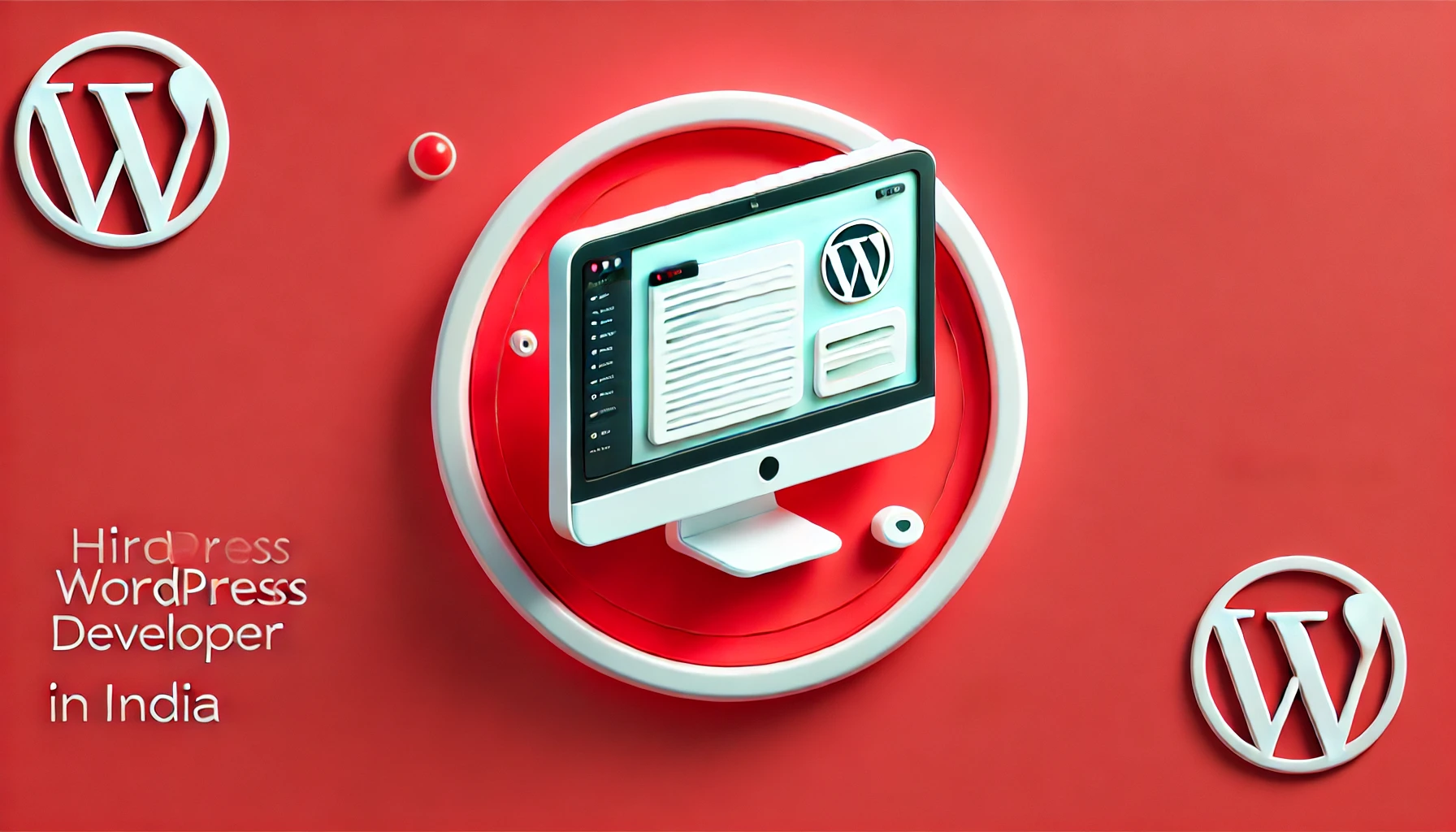WordPress stands as one of the most versatile and powerful content management systems (CMS) in the digital world today. Its widespread popularity is rooted in its flexibility, scalability, and ease of use, which make it a go-to choice for businesses of all sizes and industries.
Whether you are running a simple blog, managing a corporate website, or building a robust eCommerce platform, WordPress can cater to your needs with unparalleled efficiency. What truly sets WordPress apart, however, is its extendability—an ecosystem powered by thousands of plugins designed to enhance its functionality and tailor it to specific business requirements.
While many off-the-shelf plugins exist to meet common needs, they often fall short when it comes to addressing unique challenges or highly specific requirements.
For organizations looking to stand out and optimize their operations, custom plugin development is no longer a luxury but a necessity. Custom plugins offer a tailored solution that integrates seamlessly with your existing setup, ensuring performance, security, and scalability.
This is where hiring a skilled WordPress developer becomes critical. Among the global talent pool, Indian WordPress developers have emerged as a top choice for businesses worldwide. Known for their technical expertise, cost-effective services, and ability to deliver quality solutions, Indian developers offer an excellent option for organizations seeking bespoke plugins.
In this comprehensive guide, we’ll walk you through the essentials of custom plugin development, highlight the unique advantages of hiring a WordPress developer from India, and provide actionable steps for ensuring a smooth and successful collaboration.
By the end of this guide, you’ll be equipped with the knowledge and confidence to transform your website through custom plugin development, empowering your business to achieve its goals efficiently and effectively.
Understanding WordPress Plugins
WordPress plugins are essential tools that allow users to extend and customize the functionality of their WordPress websites without modifying the core WordPress files. These small software applications integrate seamlessly into the WordPress framework, enabling users to add or enhance features that meet specific needs. The versatility of plugins is one of the main reasons WordPress powers over 40% of all websites globally, catering to a vast array of industries and business sizes.
The WordPress Plugin Directory alone hosts over 60,000 free plugins, with countless premium options available through third-party developers and marketplaces. From basic tools that optimize SEO performance to advanced solutions like multi-language support, eCommerce integration, and analytics tracking, there’s a plugin for almost every conceivable use case. Popular plugins like WooCommerce, Elementor, and Yoast SEO have become staples for businesses seeking reliable, ready-to-use functionality.
However, while the vast library of plugins offers significant convenience, it’s not uncommon for businesses to encounter limitations. Off-the-shelf plugins are designed to meet general needs and often include features that may not align perfectly with your specific requirements. In some cases, combining multiple plugins can lead to compatibility issues or performance bottlenecks.
This is where custom plugin development comes into play. Custom plugins are built from the ground up to address unique business challenges, seamlessly integrating with existing systems and workflows. Whether it’s a specialized eCommerce feature, a tailored reporting tool, or a custom API integration, bespoke plugins offer precision and efficiency. They not only enhance performance and scalability but also provide a competitive edge by delivering functionality that is truly aligned with your business goals.
Understanding the power of plugins—and recognizing when to opt for a custom solution—is key to harnessing the full potential of WordPress for your business
WordPress plugins are a vital aspect of extending the functionality of your website, but not all plugins are created equal. While there are thousands of ready-made plugins available, they may not always align perfectly with your business requirements. Custom plugin development offers an opportunity to address this gap, delivering tailored solutions that cater to your specific needs and empower your business to thrive in a competitive digital landscape. Here’s why investing in custom plugin development is a smart choice:
1. Tailored to Your Needs
One of the primary advantages of custom plugin development is the ability to design solutions that are perfectly aligned with your unique business requirements. Off-the-shelf plugins are created for general use cases and often come with features you may not need or lack the specific functionality you’re looking for.
Custom plugins, on the other hand, are built from scratch, ensuring they address your exact needs and integrate seamlessly with your existing WordPress setup.
Whether it’s automating a particular workflow, integrating with a third-party API, or providing a user experience tailored to your audience, a custom plugin ensures that your website operates exactly as you envision.
2. Enhanced Performance
Generic plugins often include a range of features designed to appeal to a wide audience. While this makes them versatile, it can also lead to performance issues. Plugins with unnecessary features consume server resources, potentially slowing down your website.
Custom plugins are designed with efficiency in mind. By focusing solely on your business objectives, these plugins minimize resource usage, improve loading times, and enhance overall site performance. A fast and responsive website not only improves user experience but also boosts SEO rankings, driving more traffic to your site.
3. Better Security
Security is a top concern for any website owner, especially when handling sensitive data or conducting online transactions. Widely-used plugins are frequent targets for hackers due to their popularity, and even well-maintained plugins can introduce vulnerabilities.
With custom plugins, you gain better control over your website’s security. Because these plugins are built specifically for your site and are less accessible to external users, they present a smaller attack surface. Additionally, a skilled developer can implement security measures tailored to your business, ensuring compliance with industry standards and data protection regulations.
4. Scalability
As your business grows, so do your website’s requirements. Off-the-shelf plugins may not always keep pace with your evolving needs, leading to compatibility issues or limitations. Custom plugins, however, are built with scalability in mind.
You can work with your developer to add new features, refine existing functionality, or optimize performance as your business expands. This adaptability ensures that your investment in custom plugin development continues to deliver value over the long term.
5. Competitive Edge
In today’s crowded digital marketplace, standing out from the competition is crucial. A custom plugin can help differentiate your business by offering unique functionality that competitors don’t have. Whether it’s an innovative customer interface, a proprietary algorithm, or a bespoke reporting tool, custom plugins provide a distinct advantage.
This differentiation not only enhances user experience but also strengthens your brand, positioning your business as an industry leader.
Custom plugin development offers a tailored approach to solving your business challenges while delivering superior performance, security, and scalability. By investing in a bespoke solution, you gain functionality designed exclusively for your needs, ensuring a smooth user experience and future-proofing your WordPress site. Most importantly, custom plugins enable you to innovate and stay ahead of competitors, making them a valuable asset for your business
Why Hire WordPress Developers in India?
India is a global hub for IT services, including WordPress development. Here’s why Indian developers are a popular choice:
1. Cost-Effective Solutions
India offers some of the most competitive rates in the global market without compromising on quality.
2. Skilled Talent Pool
India boasts a vast pool of highly skilled WordPress developers who are adept at the latest technologies and trends.
3. Time Zone Advantage
With a time difference that allows for near-round-the-clock progress, Indian developers can provide quicker turnarounds.
4. Communication Proficiency
Most Indian developers are proficient in English, facilitating seamless communication.
5. Proven Expertise
Indian developers have experience working with clients across industries, making them versatile and adaptable to different business needs.
Learn more about how to hire WordPress developer in India
What to Look for in an Indian WordPress Developer
Hiring the right WordPress developer is critical to the success of your custom plugin project. Indian developers are known for their technical skills, cost-effectiveness, and ability to deliver high-quality work. However, selecting the right candidate or team requires a clear understanding of the qualities that make a great WordPress developer. Here are the key attributes to look for:
1. Technical Expertise
A skilled WordPress developer must have a deep understanding of WordPress core functionalities, including themes, plugins, and the CMS framework. Additionally, proficiency in key programming languages such as PHP, JavaScript, and MySQL is essential. Expertise in HTML, CSS, and knowledge of REST APIs further enhances their ability to create feature-rich, efficient, and scalable custom plugins. Familiarity with modern tools like Git, debugging methods, and coding standards is also important for maintaining clean and efficient code.
2. Problem-Solving Skills
Custom plugin development often comes with unique challenges, from compatibility issues with existing plugins to unexpected bugs. A developer with strong problem-solving skills can quickly diagnose issues, identify efficient solutions, and implement fixes without delaying the project. Their ability to think critically and creatively ensures that they can address both technical and functional challenges effectively.
3. Creativity
Creativity is vital for developing innovative and user-friendly solutions that align with your business goals. A creative developer can design intuitive features, optimize user experiences, and implement custom functionality that makes your website stand out from competitors.
4. Reliability
Reliability is non-negotiable when choosing a WordPress developer. Look for a professional with a proven track record of meeting deadlines and consistently delivering quality work. Checking client reviews, project portfolios, and references can give insight into their reliability and work ethic.
5. Strong Communication
Effective communication is key to a successful collaboration. A reliable developer should provide clear and consistent updates, ask the right questions to understand your requirements, and be responsive to feedback. Proficiency in English ensures seamless communication, especially in remote collaborations.
By prioritizing these qualities, you can find an Indian WordPress developer who is equipped to deliver a custom plugin that meets your unique business needs.
Read more about it here>>
Best Practices for Collaborating with Your Developer
Collaborating effectively with a WordPress developer is essential for the successful development of your custom plugin. A strong partnership ensures the project meets your expectations, stays on schedule, and delivers a solution tailored to your needs. Here are best practices to follow when working with your developer:
1. Set Clear Goals
Before starting the project, establish clear expectations, objectives, and a comprehensive vision for the plugin. Define the purpose of the plugin, the specific features you require, and how you expect it to integrate with your existing WordPress setup. Creating a detailed project brief can help your developer understand the scope of work, functionality, and desired outcomes. Include use cases, target users, and any constraints or preferences, such as design or coding standards. This clarity minimizes misunderstandings and sets the stage for a smooth collaboration.
2. Maintain Regular Communication
Effective communication is the cornerstone of any successful project. Maintain consistent interaction with your developer to monitor progress, address questions, and provide feedback. Utilize project management tools like Trello, Asana, or Slack to streamline communication and task tracking. Schedule regular updates or meetings, whether weekly or biweekly, to review milestones and ensure alignment on project goals. Clear and open communication keeps both parties informed and fosters a collaborative working relationship.
3. Test Early and Often
One of the most common pitfalls in plugin development is waiting until the end of the project to conduct testing. Instead, request regular prototypes or versions of the plugin during development. Early testing allows you to identify issues, provide constructive feedback, and make adjustments without derailing the timeline. This iterative approach ensures the final product aligns closely with your vision while avoiding last-minute surprises.
4. Be Open to Suggestions
While you may have a clear idea of what you want, your developer brings technical expertise and valuable insights. Be open to their suggestions, as they may propose enhancements to functionality, user experience, or performance that you hadn’t considered. Collaborative brainstorming often leads to more effective solutions, blending your business knowledge with the developer’s technical skills to create a superior product.
5. Ensure Documentation
Proper documentation is often overlooked but is crucial for the long-term success of your plugin. Insist that your developer provides comprehensive documentation, including:
- A detailed description of the plugin’s features and functionality.
- Instructions for installation, configuration, and use.
- Notes on the plugin’s architecture and code structure for future development or debugging.
Good documentation ensures that your plugin can be easily maintained, updated, or scaled, even if you switch developers or teams in the future.
Collaborating with your developer effectively requires a combination of clear communication, mutual respect, and proactive involvement. By setting clear goals, maintaining regular communication, testing prototypes frequently, remaining open to expert suggestions, and insisting on proper documentation, you can ensure the development process runs smoothly. Following these best practices not only results in a high-quality custom plugin but also strengthens your working relationship with the developer, setting the foundation for successful future projects
Challenges in Custom Plugin Development and How to Overcome Them
Custom plugin development can unlock the full potential of your WordPress site, but it is not without challenges. These obstacles, if not managed effectively, can derail a project, causing delays, budget overruns, or suboptimal functionality. Here, we outline the most common challenges and practical strategies to overcome them.
Challenge 1: Scope Creep
Scope creep occurs when additional features or changes are introduced during the development process, extending the project timeline and increasing costs. While it’s natural for new ideas to emerge mid-project, frequent alterations can disrupt workflows and lead to a bloated product that doesn’t align with the original goals.
Solution: Start with a well-defined project scope that outlines the plugin’s objectives, functionalities, and deliverables. Collaborate with your developer to create a detailed project brief, including technical specifications and use cases. Establish boundaries and a formal process for handling change requests. This might include evaluating their impact on the timeline and budget before proceeding. By adhering to the initial scope, you maintain focus and avoid unnecessary complications.
Challenge 2: Compatibility Issues
WordPress plugins must work seamlessly with your website’s existing themes, other plugins, and the WordPress core. Compatibility issues can cause functionality errors, reduce performance, or even crash your site. These problems are more common when custom plugins are not thoroughly tested in diverse environments.
Solution: Prioritize extensive testing throughout the development process. Your developer should test the plugin with your website’s current theme and active plugins to identify and resolve conflicts early. Utilize staging environments to mimic real-world conditions without affecting your live site. Additionally, ensure your developer follows WordPress coding standards and guidelines to maximize compatibility with the platform’s core updates.
Challenge 3: Delays in Delivery
Custom plugin projects often encounter delays due to unforeseen technical hurdles, miscommunication, or poor planning. Missed deadlines can disrupt your business operations, especially if the plugin is critical to your workflows or user experience.
Solution: Set realistic deadlines in collaboration with your developer, factoring in time for testing, revisions, and unforeseen issues. Break the project into manageable milestones with specific deliverables to monitor progress. Regularly review these milestones using project management tools like Asana or Jira, ensuring the project stays on track. Open communication and proactive problem-solving help address potential delays before they escalate.
Challenge 4: Budget Overruns
Budget overruns can occur when project requirements are underestimated or when scope creep introduces unplanned work. This can strain your resources and jeopardize the project’s completion.
Solution: Agree on a fixed-price model for well-defined projects. This approach ensures both parties understand the cost and deliverables upfront. For complex projects, consider a phased approach with clear budgets assigned to each phase. Regularly review project expenses to identify and address potential overruns early. Transparent discussions with your developer about costs can prevent surprises.
While challenges are inevitable in custom plugin development, they can be effectively managed with proper planning and communication. Defining clear project boundaries, conducting thorough compatibility testing, monitoring progress regularly, and implementing cost-control measures are crucial strategies for success. By anticipating and addressing these challenges, you can ensure your custom plugin meets your business needs while staying on time and within budget
Case Studies: Successful Plugin Development by Indian Developers
Indian WordPress developers have earned a reputation for delivering high-quality, cost-effective solutions tailored to clients’ unique needs. Their technical expertise, innovative approach, and ability to solve complex challenges have led to successful outcomes for businesses across industries. Here are three real-world examples that highlight the capabilities of Indian developers in custom plugin development:
Case Study 1: eCommerce Optimization Plugin
Client: An online retailer experiencing challenges in managing inventory across multiple platforms.
Challenge: The client needed a custom plugin to streamline inventory management, ensure accurate stock levels, and integrate seamlessly with their existing WooCommerce setup. Off-the-shelf solutions were either too complex or lacked the specific functionality required.
Solution: An Indian developer designed a custom eCommerce optimization plugin tailored to the retailer’s operations. The plugin featured real-time stock updates, automated notifications for low inventory, and easy integration with third-party systems like suppliers and shipping partners. Additionally, it provided an intuitive dashboard for centralized inventory control.
Outcome: The plugin enhanced operational efficiency, reduced manual errors, and improved customer satisfaction by ensuring accurate stock availability. This streamlined solution helped the retailer save time and focus on scaling their business.
Case Study 2: Membership Site Enhancement
Client: A membership-based website offering exclusive content and services.
Challenge: The client wanted to enhance their membership site by providing tiered access, enabling recurring payments, and creating personalized dashboards for each user. Pre-existing plugins either lacked the flexibility to accommodate these features or introduced compatibility issues.
Solution: An Indian developer crafted a custom membership plugin designed to meet these needs. It supported tiered membership levels, with each level granting specific content access. The plugin also integrated with multiple payment gateways to enable seamless recurring payments and included a personalized dashboard for each user, displaying tailored content, subscription details, and activity history.
Outcome: The membership site saw a 40% increase in user engagement and a 30% rise in subscription renewals. The custom plugin enhanced user experience, streamlined site management, and strengthened the site’s competitive advantage.
Case Study 3: Multilingual Support Plugin
Client: A global organization catering to audiences in multiple countries.
Challenge: The client needed a lightweight, user-friendly plugin to enable seamless language switching on their website. Existing plugins were either too bulky or lacked features like region-specific customization and compatibility with the client’s unique site architecture.
Solution: An Indian developer built a custom multilingual plugin optimized for speed and ease of use. The plugin supported multiple languages, enabled region-specific content variations, and allowed users to switch languages effortlessly through an intuitive interface. It also ensured compatibility with the client’s theme and other active plugins.
Outcome: The website experienced a significant boost in international traffic and user retention. The lightweight plugin not only improved the site’s performance but also empowered the organization to effectively connect with its global audience.
These case studies demonstrate the expertise and innovation of Indian WordPress developers in delivering custom solutions that address specific business needs. From optimizing eCommerce operations to enhancing membership sites and supporting global audiences, Indian developers have proven their ability to craft high-quality plugins that drive results
Cost of Hiring WordPress Developers in India
Hiring a WordPress developer for custom plugin development is an investment that depends on several key factors. Developers in India are known for offering high-quality services, and the cost of these services can vary significantly based on the scope and specifics of your project. Understanding the variables that influence pricing can help you make informed decisions while selecting the right developer or development team.
1. Complexity of the Plugin
The level of complexity in your desired plugin is a major determinant of development costs. Simpler plugins with basic features, such as contact forms or minor integrations, require less time and effort to develop. On the other hand, advanced plugins with sophisticated functionality—like real-time data synchronization, multi-user support, custom dashboards, or API integrations—demand more extensive planning, coding, and testing. Additionally, plugins that need to work across diverse environments or include advanced customization options typically involve a higher level of effort.
2. Developer’s Experience Level
The expertise and experience of the developer also play a significant role in determining the cost of your project. Developers with years of experience in WordPress development, especially those specializing in custom plugins, tend to offer deeper technical knowledge and a higher likelihood of delivering polished, scalable, and secure solutions. While experienced developers may command higher rates, their ability to handle complex requirements and foresee potential challenges can often save you time and effort in the long run. Newer or mid-level developers may offer more budget-friendly options, but their suitability will depend on the complexity of your project.
3. Project Timeline
The urgency of your project can impact the overall cost. If you have a tight deadline, a developer may need to prioritize your project over others, which could require additional resources or extended working hours. A flexible timeline, on the other hand, allows for more thorough development and testing processes, ensuring a well-optimized final product.
Other Considerations
- Testing and Debugging Requirements: Plugins that require extensive testing across multiple themes, plugins, and environments may involve additional effort and resources.
- Post-Development Support: Many developers offer ongoing support, updates, or maintenance packages, which can be an added cost but ensure the plugin’s long-term functionality and security.
- Collaboration Models: Whether you hire a freelancer, a development agency, or a dedicated team can influence the overall cost, as each model comes with its unique structure and benefits.
The cost of hiring a WordPress developer in India is influenced by factors such as the complexity of the plugin, the experience of the developer, and the timeline of your project. By clearly defining your requirements, maintaining open communication, and choosing a developer with the right expertise, you can ensure a smooth development process and a high-quality final product. Indian developers are well-regarded for their technical proficiency and ability to deliver tailored solutions, making them an excellent choice for businesses seeking custom WordPress plugins
Conclusion
Custom plugin development is a powerful way to tailor your WordPress site to specific business needs. Hiring a WordPress developer from India combines cost-effectiveness with high-quality results, making it an excellent choice for businesses worldwide. By following this guide, you can streamline the hiring process, collaborate effectively, and ensure the successful development of a custom plugin that aligns perfectly with your goals.
Whether you’re enhancing your website’s functionality or creating something entirely new, Indian developers have the skills, experience, and commitment to deliver exceptional solutions. So take the plunge, and transform your WordPress site with custom plugins designed to take your business to the next level.





